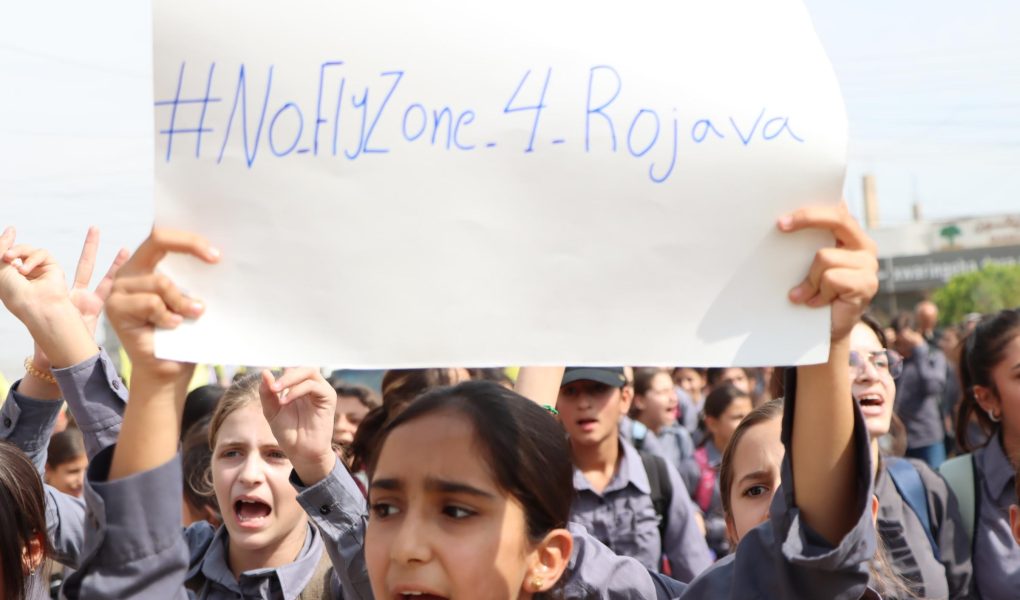With Aya Ali al-Muhammad, we continue to tell a series of stories of young murdered by the Turkish army in North and East Syria. Young women who took their share of responsibility in a war-torn region and died at their places of work. They leave families in pain, but also a society that remains determined to leave the time of war behind and to build peaceful and democratic coexistence together with all the ethnic groups of the region.
Aya – a young cotton worker, hit by drones

Aya Ali al-Muhammad’s little sister sits in the corner of the room, crying as she listens to the words of her mother, who speaks to us with pain and condemnation. She says: Aya and her companions did not carry weapons to confront Turkish planes. Why were they killed in this horrible, inhumane way? How long will these inhumane crimes continue? And why is the world, civil society and all the human rights organizations silent?
Every day the suffering of the civilian population in North- and East Syria is renewed as the Turkish state attacks the region’s infrastructure with drones and missiles and destroys electricity and water supplies, factories and institutions. With these attacks, Turkey is trying to destabilize the situation in the region, create chaos and revive the terrorist organization ISIS, occupy more areas in North- and East Syria, displace people and in this way cause ethnic cleansing and demographic changes in the region.
One of the victims of these attacks is Aya Ali al-Muhammad, a young girl who was only 17 years old. She died as a result of a rocket attack on a cotton factory on December 25, 2023 in the city of Qamishli.
Aya attended primary school in Al-Hajiya village, which was part of the city of Qamishli. With the start of the revolution and because of the subsequent attacks by the Islamic State, Turkey and the economic embargo against the developing self-government in the region, the family was forced to move to the city of Qamishli in order to secure job opportunities and the family’s livelihood.
As a result, Aya was unable to continue her schooling and read and write what she had not learned.
Aya’s family belongs to the region’s poor households. Together with the mother and father, the aunt, the siblings, cousins, the family consisting of 13 people, including 8 children, lives together in one house. The father works in the community and the older brothers are also workers.
Like all young women of her generation, Aya loved life and she filled the house with joy and happiness in an entertaining way. She liked to joke, enjoyed dressing up, loved beautiful clothes, perfume and, above all, chocolate.
Aya had decided to work in the nearby cotton factory to help support the family. They worked alongside dozens of other men and women for their daily bread. There, the cotton brought in from the fields was effortful gutted using Cotton Gins and hands to prepare it for further processing.
On the morning of December 25th, Aya left the house without breakfast as usual and went to the factory with her friends. In the afternoon, the family heard the sounds of explosions in the city. Little did they know that the cotton factory where Aya worked had also been attacked by Turkish drones.
Aya was killed and two other young women were injured. The factory was not a military base or ammunition depot, but rather a source of livelihood for many families in the district, which was predominantly inhabited by Arab families.

